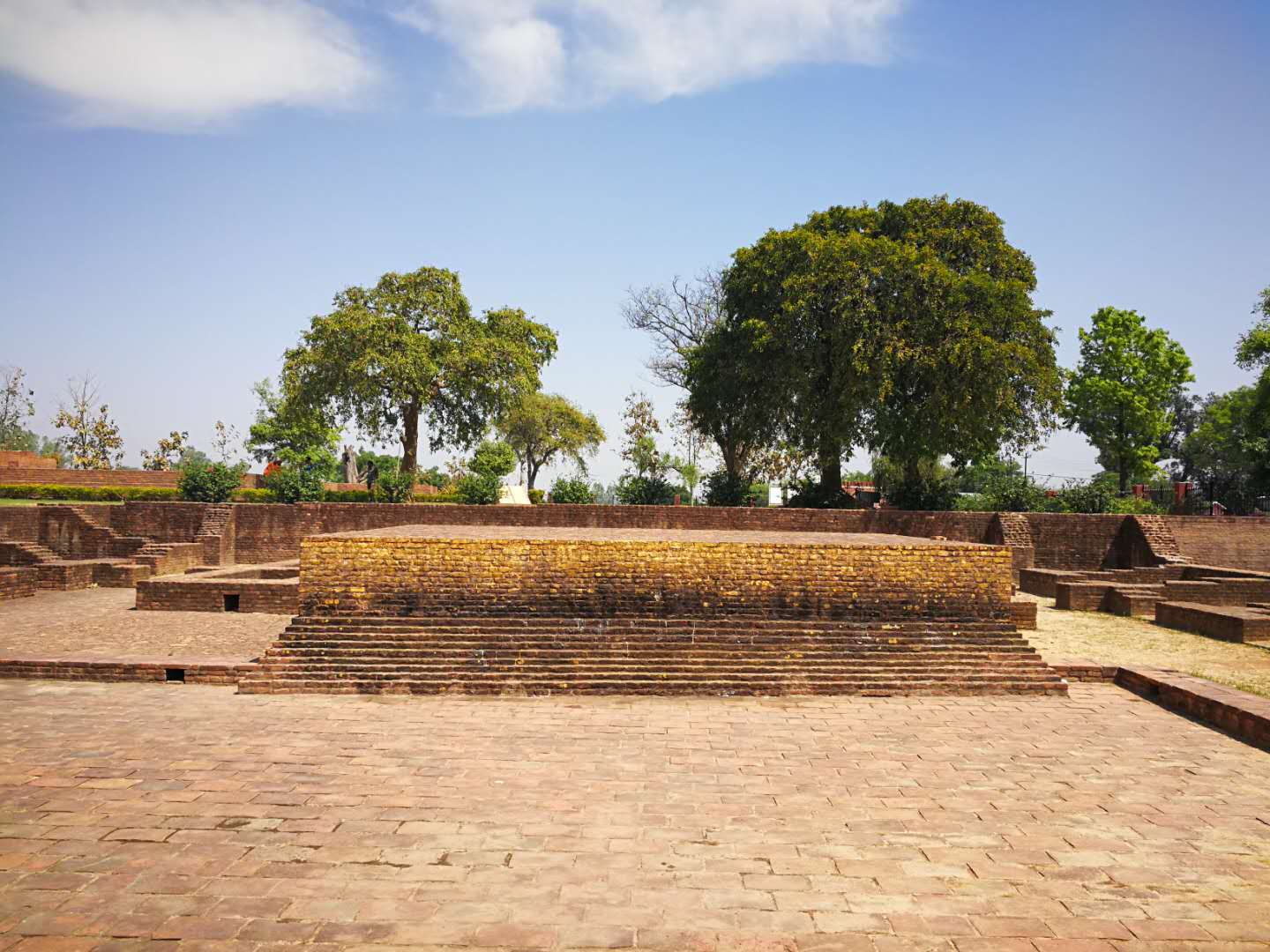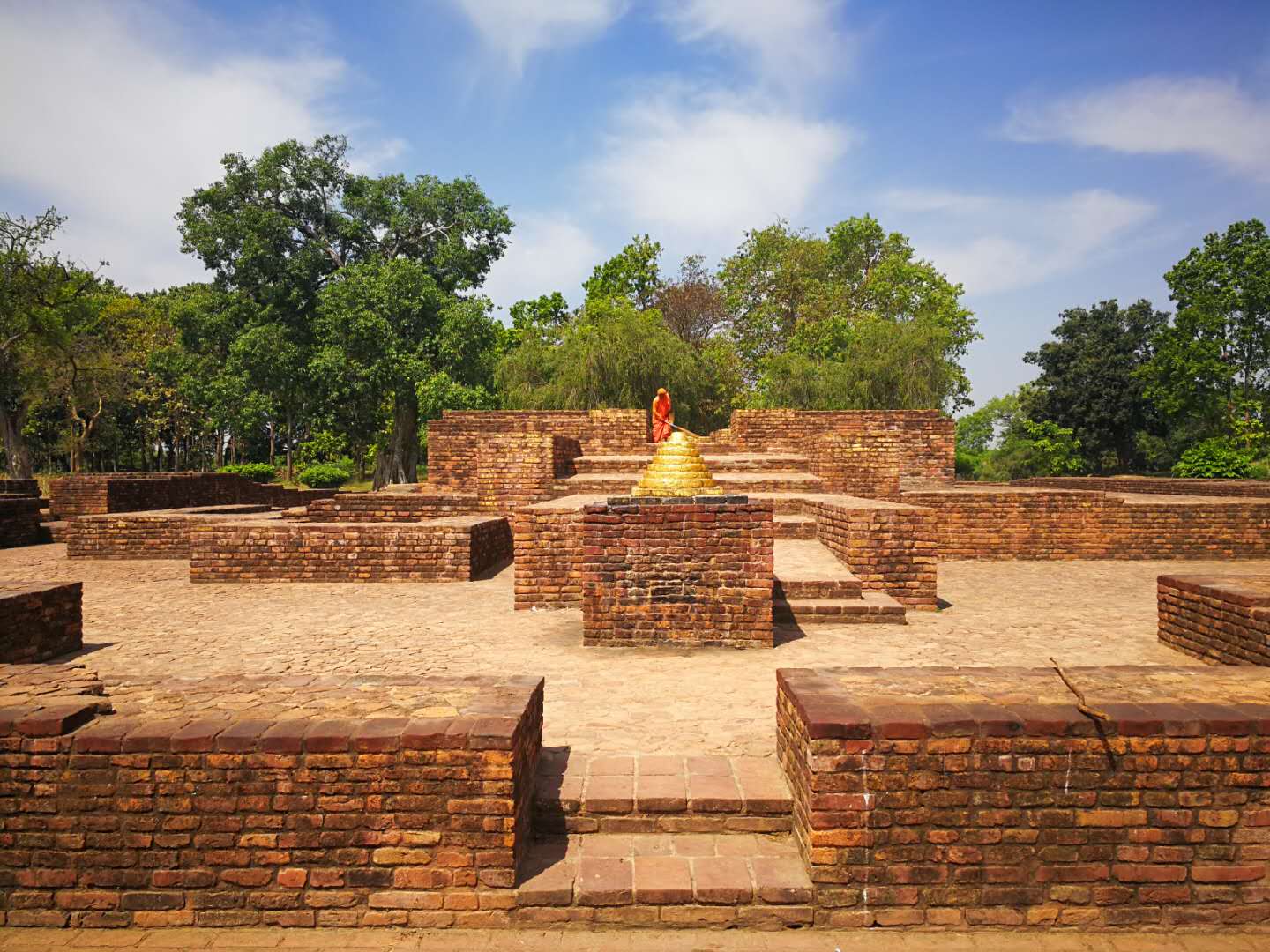Jetavana
Jetavana was one of the most famous of the Buddhist monasteries or viharas in India (present-day Uttar Pradesh). It was the second vihara donated to Gautama Buddha after the Venuvana in Rajgir.
Jetavana was the place where the Buddha gave the majority of his teachings and discourses, having stayed at Jetavana nineteen out of 45 vassas, more than in any other monastery.It is said that after the Migāramātupāsāda, a second vihara erected at Pubbarama close to Savatthi was built by the Buddha’s chief female lay disciple, Visakha, the Buddha would dwell alternately between Jetavana and Migāramātupāsāda, often spending the day in one and the night in the other.

Donation of Jetavana. Anathapindika covers Jetavana with coins (Bharhut). Following Anathapindika’s first encounter with the Buddha, he requested to offer him a meal, which the Buddha accepted, and then asked to build a temple for him and his monks in his hometown of Savatthi, to which the Buddha agreed.
Shortly after, Anathapindika went back to Savatthi to search for a place to build the monastery. Looking for a place that was both accessible to followers and peacefully secluded, he came across a park belonging to Prince Jeta, the son of King Pasenadi of Kosala. Anathapindika offered to buy the park from the prince but the prince refused, after Anathapindika persisted, the prince joking said he will sell him the park if he covers it with gold coins, to which Anathapindika agreed.
Anathapindika later came back with wagons full of gold pieces to cover the park with. When Prince Jeta stated that he was merely joking and still would not sell the park, Anathapindika and the prince went to arbitrators who concluded that Prince Jeta had to sell the park at the mentioned price.
The money brought in the first journey was found insufficient to cover one small spot near the gateway. So Anāthapindika sent his servants back for more, but Jeta, inspired by Anāthapindika’s earnestness, asked to be allowed to give this spot. Anāthapindika agreed and Jeta erected there a gateway, with a room over it. Anāthapindika built in the grounds dwelling rooms, retiring rooms, store rooms and service halls, halls with fireplaces, closets, cloisters, halls for exercise, wells, bathrooms, ponds, open and roofed sheds, etc.
It is said that Anāthapindika paid eighteen crores for the purchase of the site, all of which Jeta spent in the construction of the gateway gifted by him. Jeta gave, besides, many valuable trees for timber. Anāthapindika himself spent fifty-four crores in connection with the purchase of the park and the buildings erected in it.
The ceremony of dedication was one of great splendour. Not only Anāthapindika himself, but his whole family took part: his son with five hundred other youths, his wife with five hundred other noble women, and his daughters Mahā Subhaddā and Cūla Subhaddā with five hundred other maidens. Anāthapindika was attended by five hundred bankers. The festivities in connection with the dedication lasted for nine months.

